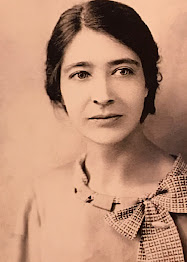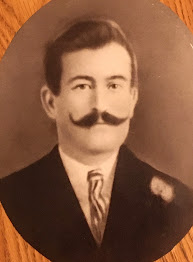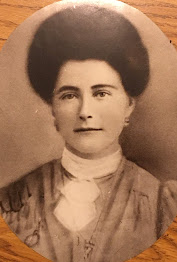Picture it: Sicily, 1922.
Stella is born in the village of Ievoli in 1920. Over the course of her life, she has a lot of brushes with death. The family story is that even though her name roughly translates to "lucky star," she's cursed by the ghost of the older sister who died before she was born. Maybe, maybe not?
Throughout the story you meet her entire family, including the generation before her, and learn how hard survival was in Italy for a family at that time. In her late teens, they immigrate to Hartford, CT, and life goes on. I really don't want to say much more because I don't want to spoil anything that happens. But trust me, it's juicy. It's twisty and turny. And there is just enough nudging and winking by the story teller to keep you going, "And then what? And then what?" I need to talk to Juliet Grames and find out if there is even more to this story, based loosely on her own grandmother. I actually cried at the end of this book, and I don't really cry at books.
Content warnings for some scenes of violence against women and children. They're short scenes, but two come pretty close together about 2/3 of the way in and I had to actually walk away from the book for a couple of days to process that.
My great-great-great-granparents, Clemente Serafini and Giuseppa (Pizzutti) Serafini.
Reading this made me think of my own family of immigrants. My mother was half Italian; her mother's family was from Italy (but from Frosinone, not Calabria). They arrived in the USA and settled in Leominster, Massachusetts in 1905 (the Lanzas) and 1921 (the Roccas, by way of France). Mary Lanza was born in 1905, just a few months after her parents arrived, and was the first of eight children. Renaldo Rocca was a young adult when he arrived. Family lore is that Mary and Renaldo were an arranged marriage. Their daughter Josephine (my grandmother) told me that their families knew each other from "the old country." Reading this book made me think a lot about them, and I wished I could talk to my great-grandmother about it. I'm sure she had stories from her parents about Italy. I was lucky enough to have her in my life until I was 22 and she was 95. We did make ravioli together and she was the kindest, sweetest, tiniest and possibly my most Catholic relative (although there is some competition on Dad's side for that title).



I have a cousin (who is actually my mother's first cousin if we're being technical) who based an entire TV show around Mary and her ravioli.
And now Mary, Josephine, and my mother Janet are all gone. The Italian blood has been diluted by my grandfather's English/Irish and my dad's Eastern European. Still, 23 and Me and Ancestery.com confirm that I have it! Reading this book during quarantine inspired me to start studying Italian in earnest. Someday we'll be able to travel again, and I've only seen a small portion of Italy. I really want to go to Alvito, the villiage in Frosinone where my great-greats and great-great-greats came from. I feel like in order to really do it right, I need to have a basic mastery of Italian. I want to correspond with someone over there who knows how to find records and find out where my relatives actually lived. I want to be able to speak Italian with people who might be my distant cousins. I've already heard from someone on Instagram who saw (Mary's mother) Giulia's photo and said that he has her maiden name as his last name and he believes he has her mouth. His name is Mario.
We went to Venice and had a day trip to Trieste in 2016. We first were in Hungary and Austria, and when we got to Venice after a bus, a train and a boat and then a vaporetto, we had to haul our luggage up two flights of stairs. We checked into the hotel and then found a place to have dinner and I had a chance to finally just sit and look around and take it in. My boyfriend asked why I was crying. I said, "Because I'm in Italy." My mom never made it to Italy. My grandmother told me many times that she wanted to see it. And there I was, about to order a plate of spaghetti on a palazzo. For a few days I lived almost entirely on spaghetti, gelato, and white wine, and somehow my pants still fit by the end of the trip. I can't wait to go back.

Anna Josephine (Rocca) Gould; Janet (Gould) Lewin
This entry is kind of all over the place, which I recognize. This book brought up a lot, I guess! I'm not a big re-reader but this is one I will re-read. I promise you'll love it, or I'll take you out for pasta. Even if you do love it (WHEN you do love it) I'll still take you out for pasta. I want to talk about Stella with someone else who's gotten to know her.
For another book about someone who's almost died again and again, I highly recommend the memoir I Am, I Am, I Am by Maggie O'Farrell. For a book with a similar vibe, try My Brilliant Friend by Elena Ferrante. (I need to read the rest of that series.)








No comments:
Post a Comment